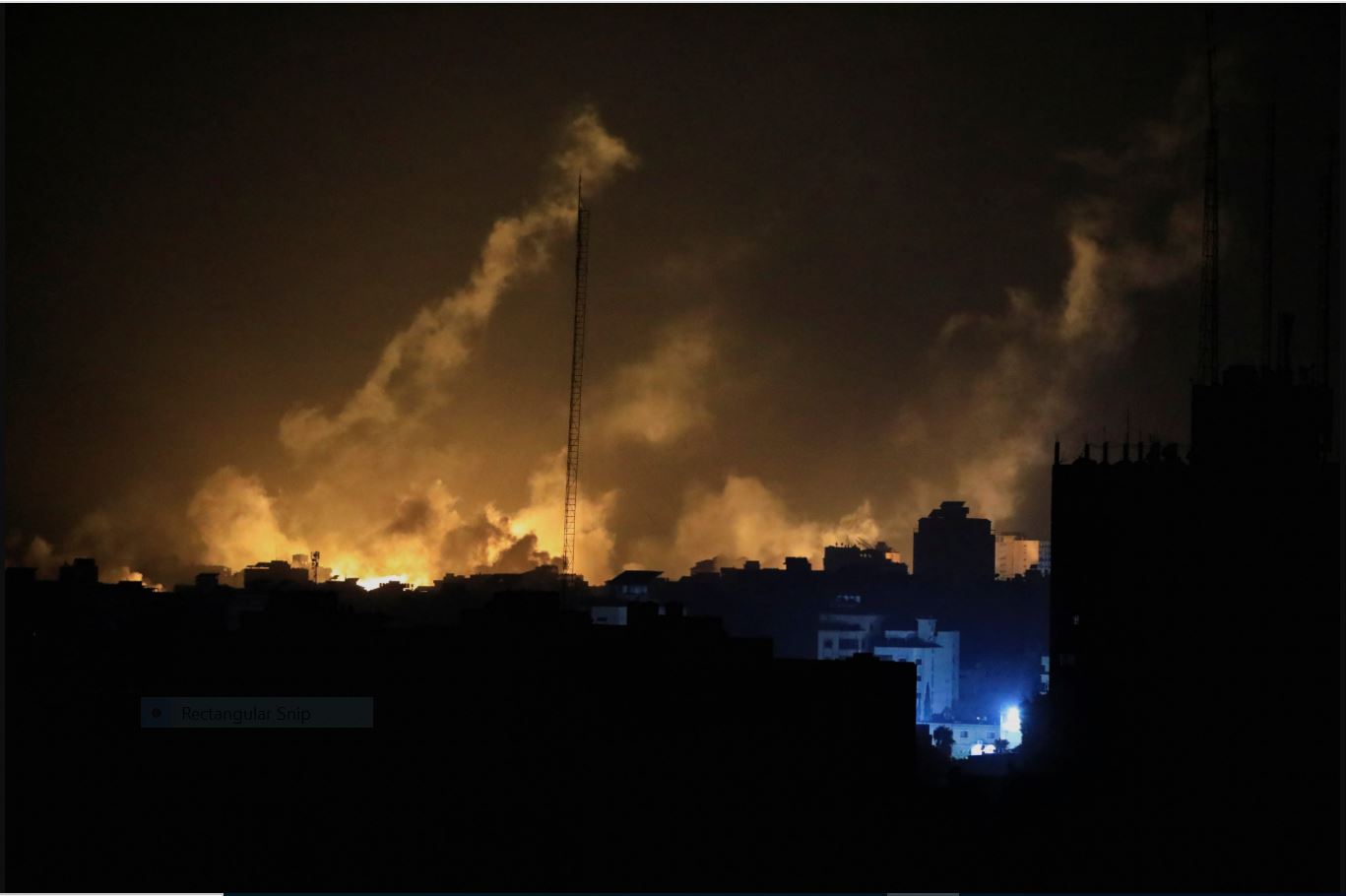Blinken rebuffs Arab states’ push for immediate Gaza ceasefire
Amman (Reuters) – Arab leaders on Saturday urged an immediate ceasefire in Israel’s military offensive in Gaza, pressing U.S. Secretary of State Antony Blinken to convince Israel, but the top U.S. diplomat said such a halt right now would only allow Palestinian militant group Hamas to regroup and attack Israel again.
In a rare public disagreement at a news conference in Amman, foreign ministers of Jordan and Egypt, standing alongside Blinken, repeatedly pushed for a cessation of hostilities, saying the death of thousands of civilians could not be justified as self-defense.
They also refused to discuss in-depth what comes next for Gaza, when and if Hamas is eradicated, saying the immediate focus should be on the effort to establish a cessation of hostilities.
Blinken is on his second trip to the region since Israel and Hamas went to war on Oct. 7, when the Islamist militant Palestinian group raided Israel from Gaza, in a rampage Israel says killed 1,400 people, with more than 240 others taken hostage.
Health officials in Hamas-run Gaza say more than 9,250 Palestinians have been killed in Israeli attacks since then. The Israeli army has struck Gaza from the air, imposed a siege and launched a ground assault, stirring global alarm at humanitarian conditions in the enclave. Food is scarce and medical services are collapsing.
The growing number of civilian deaths in Gaza has intensified international calls for a ceasefire but Washington, like Israel, has so far dismissed them, even though it has sought to persuade Israel to accept localized pauses – an idea rejected by Israeli Prime Minister Benjamin Netanyahu after he met Blinken on Friday.
“A ceasefire now would simply leave Hamas in place, able to regroup and repeat what it did on Oct. 7,” Blinken said. “No nation, none of us would accept that … So it is important to reaffirm Israel’s right and its obligation to defend itself.”
Blinken earlier met with Saudi, Qatari, Emirati, Egyptian and Jordanian foreign ministers as well as Palestinian representatives in Amman. The Jordanian Foreign Ministry said the meeting would emphasize the Arab stance calling for an immediate ceasefire, delivering humanitarian aid and ways of ending “the dangerous deterioration that threatens the security of the region.”
“The international community’s responsibility always is to seek the cessation of hostilities, not promote the continuance of violence,” Egyptian Foreign Minister Sameh Shoukry said at the same press conference.
“I think we need to get our priorities straight,” Jordanian Foreign Minister Ayman Safadi said. “Right now we have to make sure that this war stops,” he added.
Washington has been speaking with Israel, Arab states and international organizations on the future of Gaza but both Shoukry and Safadi appeared reluctant to discuss openly those conversations to ensure the focus remains on the need for a ceasefire.
“What happens next – how can we even entertain what will happen in Gaza when we do not know what kind of Gaza will be left,” after this war, Safadi said.
Arab states are also concerned by the risk of the conflict spreading into the region. Lebanon’s Hezbollah and Iraqi Shi’ite militias backed by Iran have both launched attacks on Israel since Oct. 7, while Tehran-backed Iraqi Shi’ite militias have been firing on U.S. forces in Iraq and Syria.
Lebanon’s caretaker prime minister, Najib Mikati, stressed the urgent need for a ceasefire in Gaza during a meeting with Blinken in Jordan on Saturday, Mikati’s office said. Mikati also said “Israeli aggression” in southern Lebanon must stop.
Humanitarian Pauses
After his meeting with Blinken on Friday in Israel, Netanyahu said Israel refused a temporary ceasefire that did not include the release of hostages.
A senior State Department official said Blinken’s talks with Netanyahu and his war cabinet about humanitarian pauses on Friday mirrored an earlier push last month for access for humanitarian goods into Gaza.
In that case, Israel initially refused but eventually relented, and more than 100 aid trucks per day are now crossing into the strip, the official said. U.S. officials say 500-600 trucks per day are needed to meet the need in Gaza.
Now the U.S. is asking Israel to agree to temporary and location-specific pauses in its attacks to allow aid to be distributed inside Gaza, but Israel is concerned Hamas will use agreed pauses to regroup and resupply.
U.S. special envoy for Middle East humanitarian issues David Satterfield told reporters travelling with Blinken that Israel’s concerns were understandable, but that assurances that Israel will not target specific places or routes were a “strategic imperative” to get aid to those who need it.


